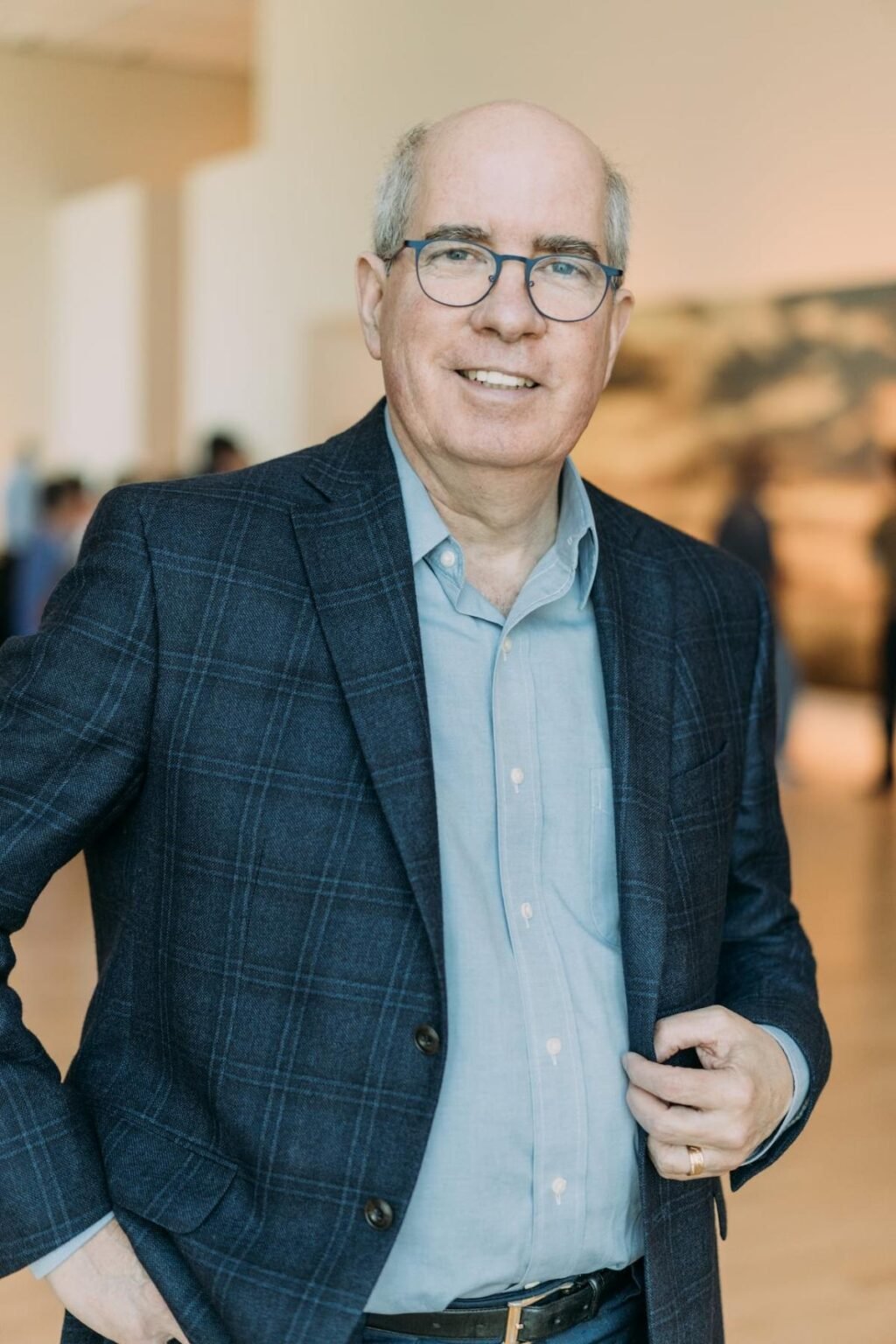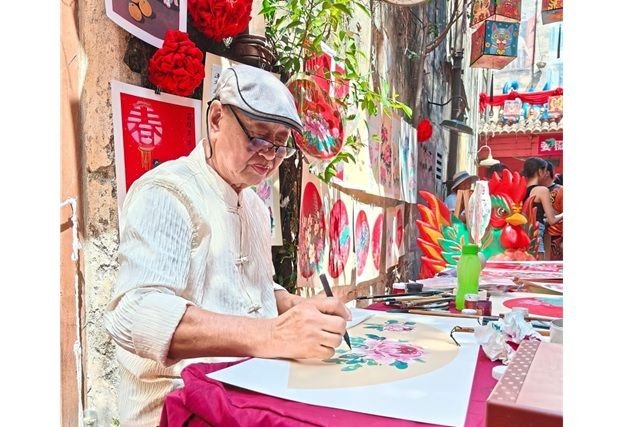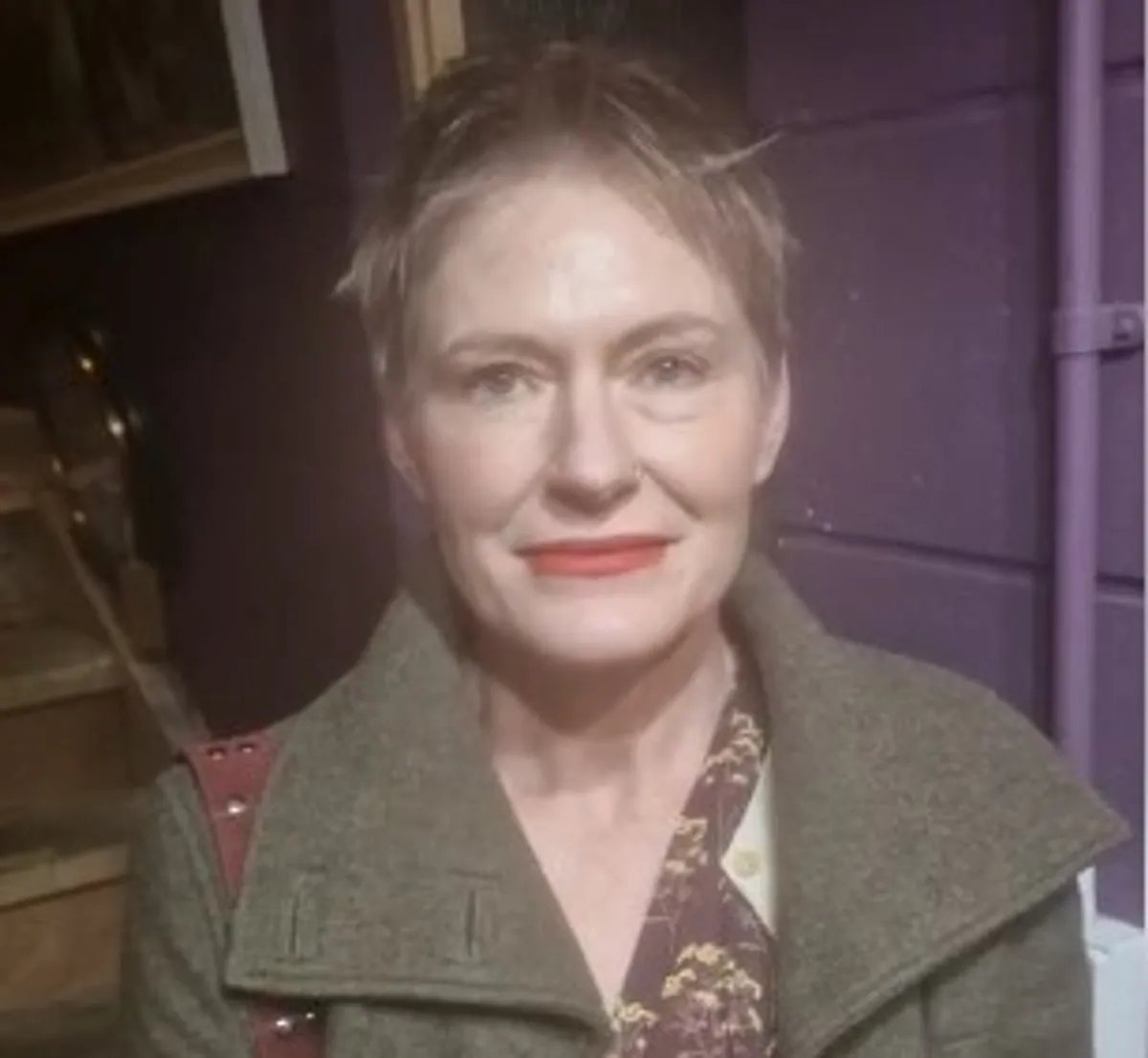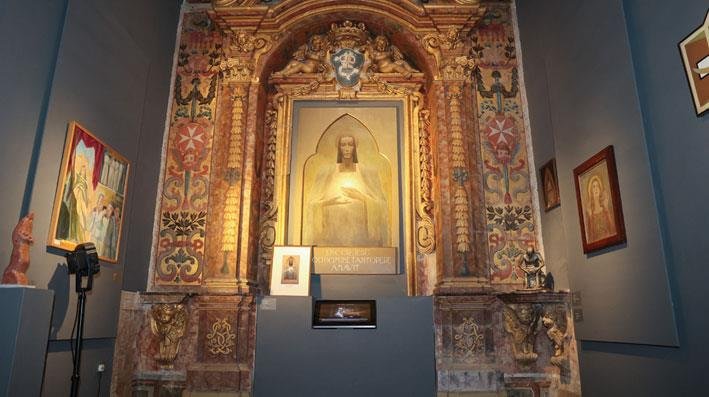Tom Smart describes his humble beginnings in the art world as that of an art school dropout, a hippie, an actor, a scene painter, commercial artist and book illustrator.
“That’s kind of my bedrock — I was a rogue,” he said.
“I went back to school in English Lit, thinking through English Lit I could maybe start to understand … what creativity was, what artistic expression was, and is, and how I could find it in myself.”
And while for most of his career Smart surrounded himself with some of the greatest artists in the world as he led a number of major art institutions, including the Beaverbrook Art Gallery, he’s ready to get back to his roots.
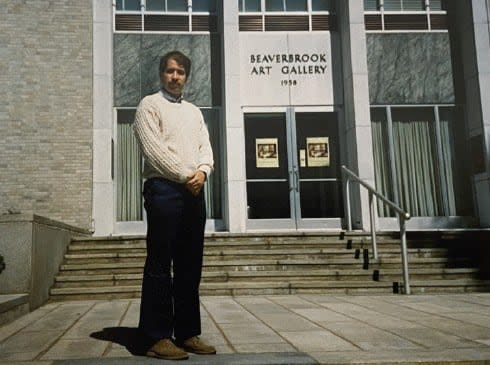

Tom Smart is seen here in 1989 in front of the Beaverbrook Art Gallery, where he got a job as curator. (Submitted by Beaverbrook Art Gallery)
“I wanted to paint more watercolours than I usually do, and I wanted to write … more about art and artists without getting bogged down in the administration of a big organization like the Beaverbrook,” Smart said, on Information Morning Fredericton, about his decision to retire.
“I just wanted to go back to what I really love and to really connect with the creative process.”
Smart had his last day on Friday as director of the Beaverbrook — a journey that began in 1989 when he took on his first job at the gallery as a curator.
He spent eight years there before moving to other galleries across Canada and the United States, including as CEO of the prestigious McMichael Canadian Collection, in Kleinburg, Ont., and at the Frick Art and Historical Center, in Pittsburgh, Pa.
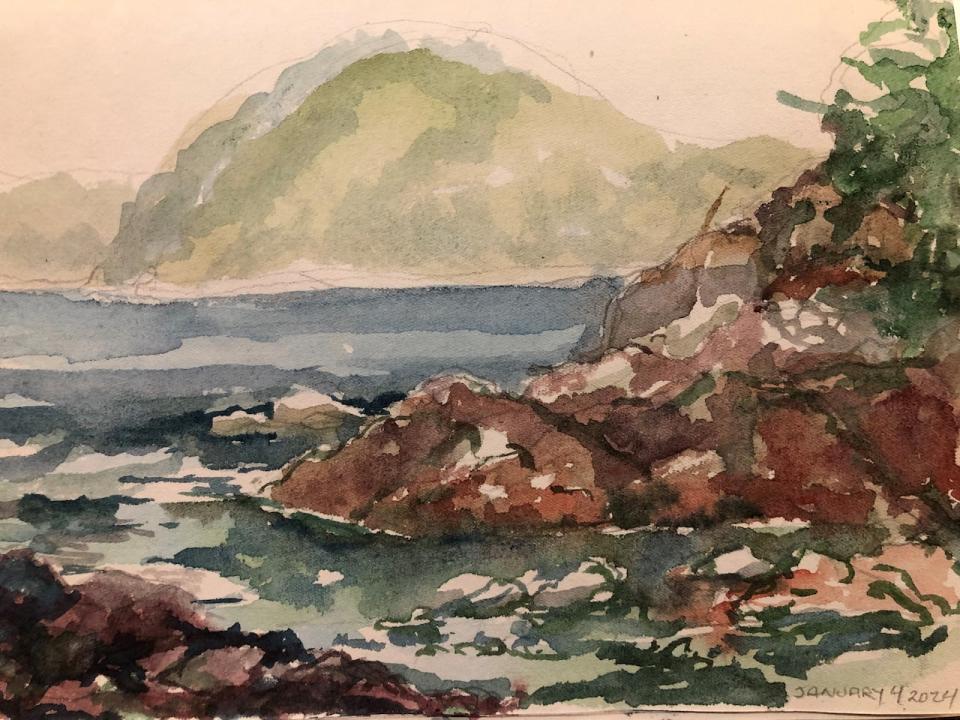

Smart plans to spend time working on his own art, painting watercolours in the Georgian Bay, Ont. (Submitted by Beaverbrook Art Gallery)
He’s also written a number of books, including major works on Alex Colville, Mary Pratt and Miller Brittain.
In 2017, Smart returned to the Beaverbrook as director to focus on setting up the gallery for a sustainable future.
Smart said he believes he has achieved that, noting that the budget has grown over the last several years to allow for more activities, exhibitions and public outreach.
Under Smart’s leadership, the Harrison McCain Pavilion underwent an architectural redesign and construction process, which he said has also allowed for more public engagement.
Love the new, too
The gallery also was caught in a controversy in November when it sold an L.S. Lowry painting at an auction house in London that was part of Lord Beaverbrook’s original collection when he founded the gallery.
But Smart said that decision, to deaccession that painting and others, paid off.
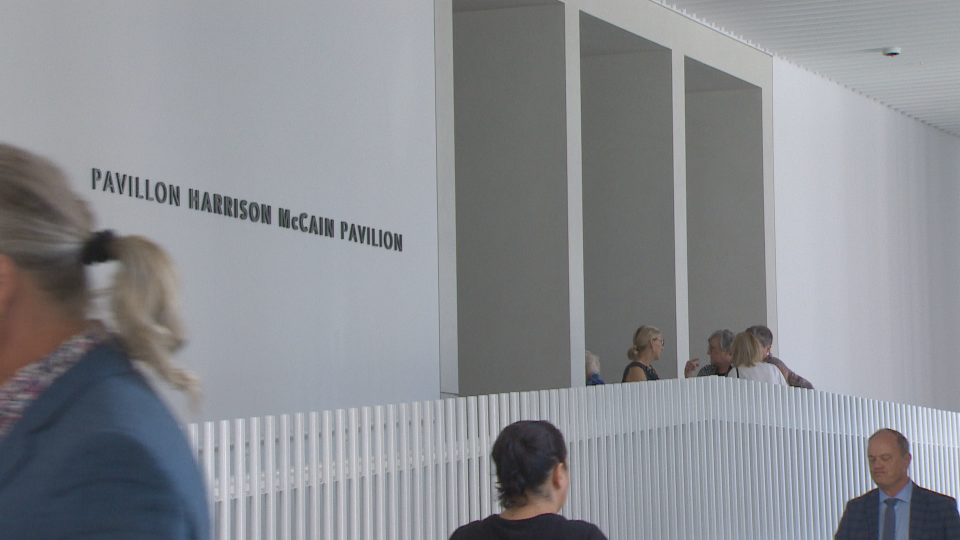

Under Smart’s leadership, the Harrison McCain Pavilion underwent extensive renovation. The new public space also includes a coffee shop. (Jon Collicott/CBC)
He said some of the acquisitions with those funds have already been put on display, including one from artist Lawrence Paul Yuxweluptun about climate change and forest fires.
“I knew that people connect very deeply to the collection,” said Smart.
“And I hope they love what we’ve brought into the collection, and we’ll be bringing into the collection, as a consequence of the deaccessioning process.”
He said he listened carefully to the criticism during that time and things may be more transparent in the future, but it will be up to the new director and curator going forward.
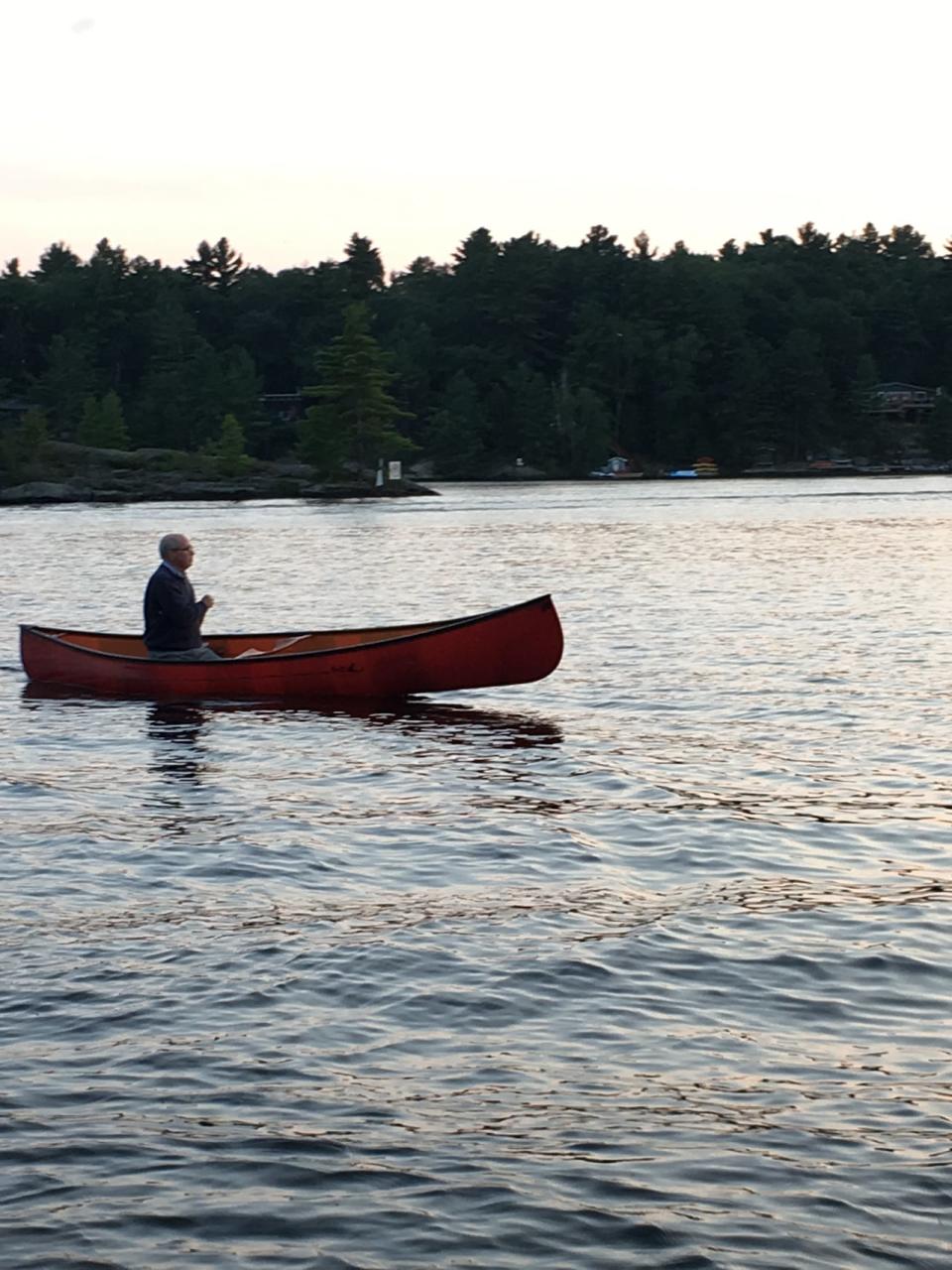

Smart plans to spend time paddling his red canoe in retirement, stopping to pull out his watercolours along the way. (Submitted by Beaverbrook Art Gallery)
The Beaverbrook Art Gallery said in a news release that an international search is underway to find a replacement. In the interim, the gallery will be managed by a three-member team.
As for Smart, he is already preparing for retirement life and getting back to his first love.
For him, that begins at Go Home Lake in Ontario, where he has a cottage and red canoe waiting for him.
From there, he said he will often go up to Mason Island on the open water of the Georgian Bay, the inspiration for so many truly great artworks, including by the Group of Seven.
“We go … way out in the middle of the lake and I jump in and get the watercolours out on these rocks,” said Smart.
“It’s a very spare landscape, but it’s a landscape that you can imbue with your feelings and your ideas and your concepts about the here and the now.
“I’m looking forward to that very much.”

